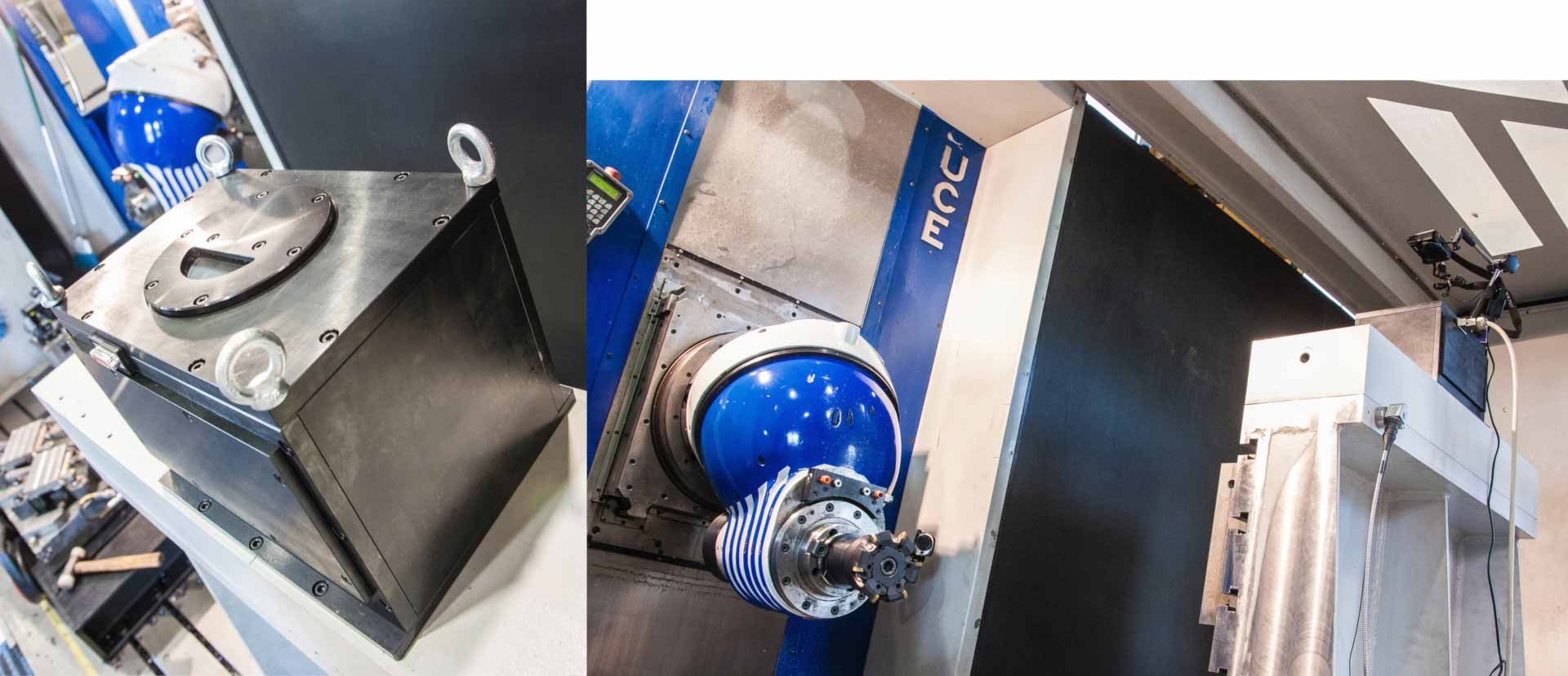Last news about IDEKO.

Led by the prestigious KTH Centre in Stockholm, Sweden, the POPJIM project ("Plug-and-Produce Components for Adaptive Control") has posed a strategic challenge to the 10 partners from 7 EC countries and has enabled the creation of joint interface modules ("JIMs") for machine tool component joining and added interface modules (“AIMs”) for damping on machine structures. These components adapt to the conditions of each particular machining process and eliminate chatter, greatly increasing cutting capacity.
Traditionally, machining instability was resolved by varying the cutting parameters to adjust them to the requirements of machine dynamic characteristics, which often reduced productivity. However, with the prototypes developed as part of this project, the machine’s dynamic characteristics now adapt to the machining.
During the project, two different concepts have been taken into account to achieve this improved cutting capacity. Firstly, the machine tool’s conventional interface was replaced by a self-configuring, optimisable mechatronic module called a Joint Interface Module (JIM). The concept is valid for light structures, such as workpiece holders or small-sized tools and machines. Added Interface Modules (AIM) have also been developed, for large structures in this case. These are add-on damping structures for incorporation to the machine or tool, and are suitable for large-sized tools and machines.
The two systems, JIMs and AIMS, communicate by means of a device that uses a wireless network to ensure they are both correctly tuned. At the same time, the controllers for all the JIM and AIM units communicate with a central support platform that receives all the data from the damping units at the plant and configures and coordinates them.
Joint Interface Modules (JIMs). The joint interface module basically consists of several layers of visco-elastic material, pre-loaded through metal plates using an actuator. The system includes sensors for pre-loading control and machining process monitoring, together with WiFi ports for communication with the controller. The joint interface module provides variable rigidity and damping according to the type of machining to be carried out.
Added Interface Modules (AIMs). Added interface modules are dampers that self-tune on the basis of variations in the pre-load of visco-elastic material or variations in the system’s rigidity, by means of an actuator. Like JIMs, AIMs include sensors for process monitoring and communicate with a central controller via WiFi ports. The damper is automatically tuned according to the vibration frequency, providing cushioning for the system at the same time.
This project forms part of IK4-IDEKO’s “Dynamics and Control” research line for characterising and optimising the dynamic performance of machines and processes. This research line has over 20 years of experience in elimating vibration in machining processes and the use of MEF methodology for dynamic structure design.
IK4-IDEKO’s task was to define the requirements to be met by the joint interface modules and determine the target operations to be tested during the project. It also piloted the modelling of the joint interface modules and coupling of their characteristics on complete machine modelling, using the substructure coupling technique. Lastly, the technology centre was prominently involved in demonstrating the prototypes built.
Results obtained
Improved productivity and process quality
The main result of this project has been to develop a new generation of components that self-tune to adapt to the machining process and are easily incorporable to machines, tools or workpiece holders, improving productivity and process quality on the production line. Specific developments consist of a lathe with two joint interface modules (JIMs), a workpiece holder with an integrated JIM, a tool with a JIM for light alloys and a tool for large machinery with two integrated AIMs.
Easy installation and more complex operations
The "plug-and-produce" components developed integrate sensors, advanced actuators and easy-to-use software, together with smart materials on several of the applications. Their easy installation on machine tools increases the machines’ functionality and productivity, allowing them to perform more complex operations while reducing the risk of defect and accident.
Industrial exploitation of the results
The Technology Centres and Universities developed state-of-the-art technologies for conceptual design of the prototypes built during the project, together with the required control algorithms for correct functioning of the joint interface modules (JIMs) and the added damper modules.
The machine tool manufacturers informed the other partners of the industry’s current and future requirements and integrated the components developed to their machines.
Finally, the component manufacturers have built a new generation of components for specific JIM and AIM functions such as actuators, wireless communication systems or the visco-elastic materials required for damping.
The project results have given rise to patent applications for the JIM concept for use with a lathe and workpiece holder and for the AIM concept. When the project is complete it will be exploited industrially by the participating machine manufacturers. The research centres will continue work on modelling the active modules for more accurate behaviour prediction leading to new developments.
The POPJIM Project kicked off in September 2010 and forms part of the EU’s 7th R&D Framework Programme, set up by the European Commission in the 2007-2013 period and involving a consortium of 6 industrial partners, 2 technology centres and 2 universities. The Spanish partners include SORALUCE S. Coop., in addition to IK4-IDEKO. All the partners will be meeting on September 11 at Soraluce S.Coop’s offices to present the full range of developments to the European Commission. The project has a budget of €4.4m and Community financing of €3.3m.
More information on the project at http://www.popjim.com/
Watch the demonstrator videos on the Youtube channel https://www.youtube.com/channel/UC_09ZcxLUum1x5wr8ankjAw